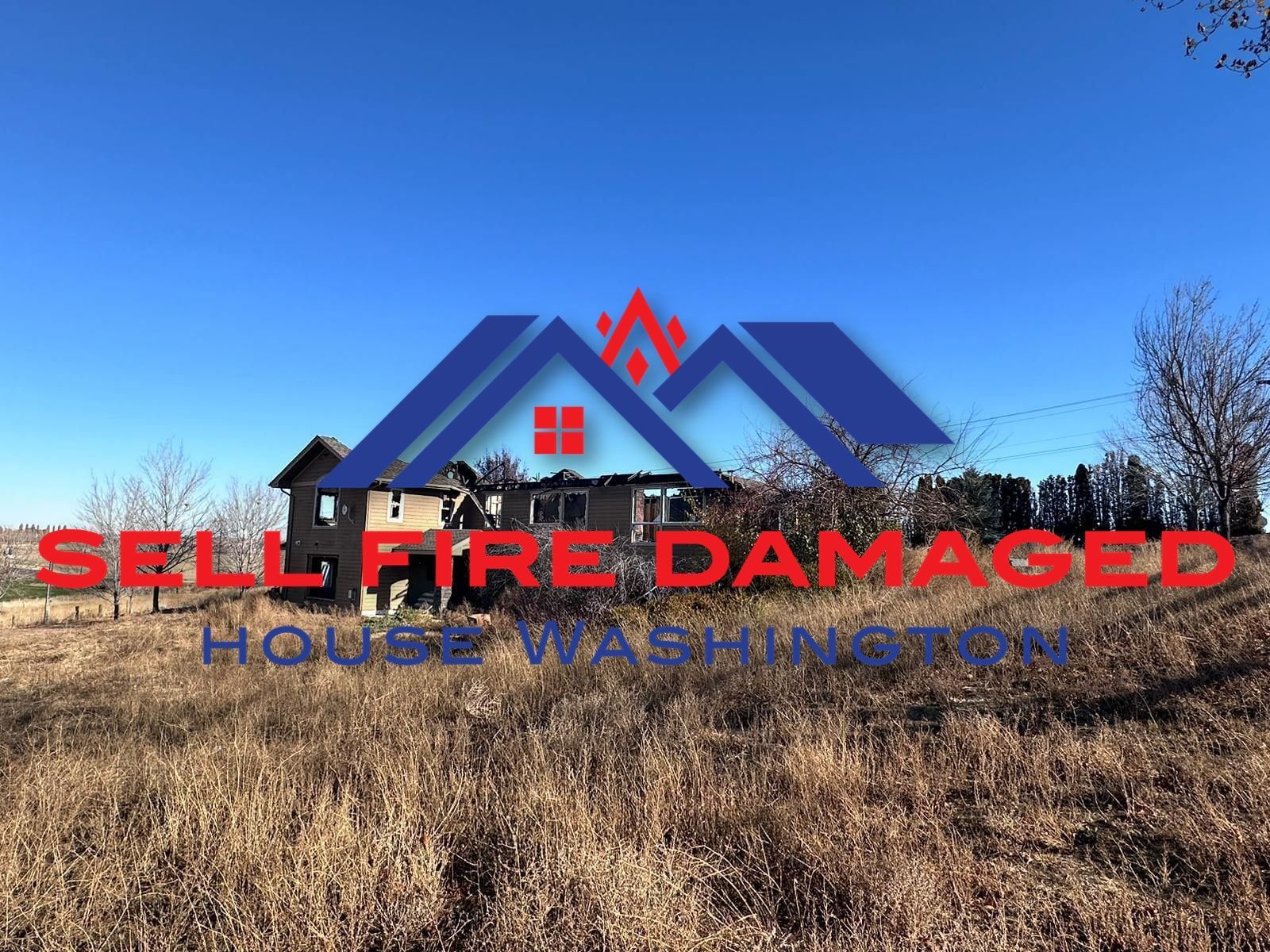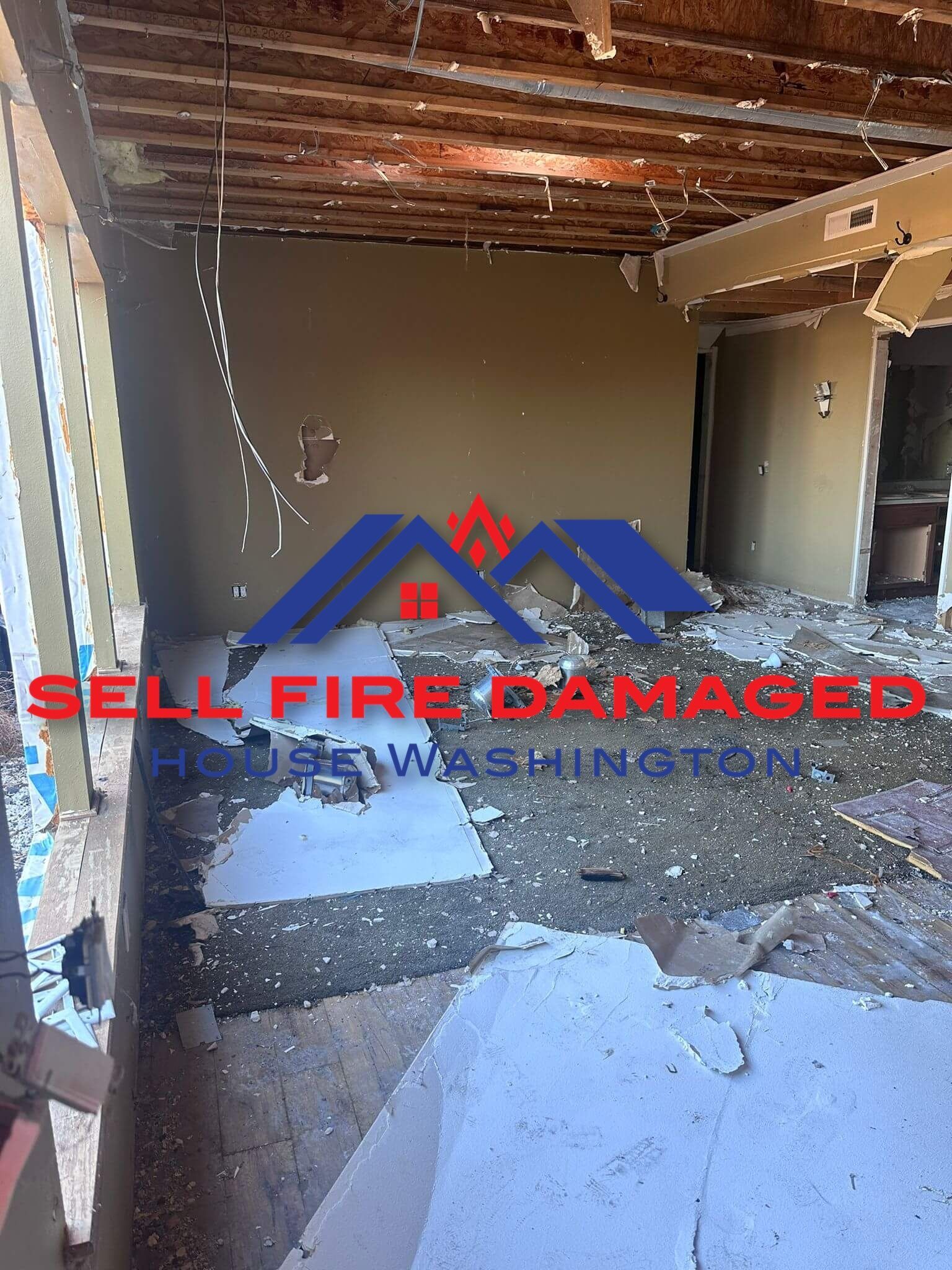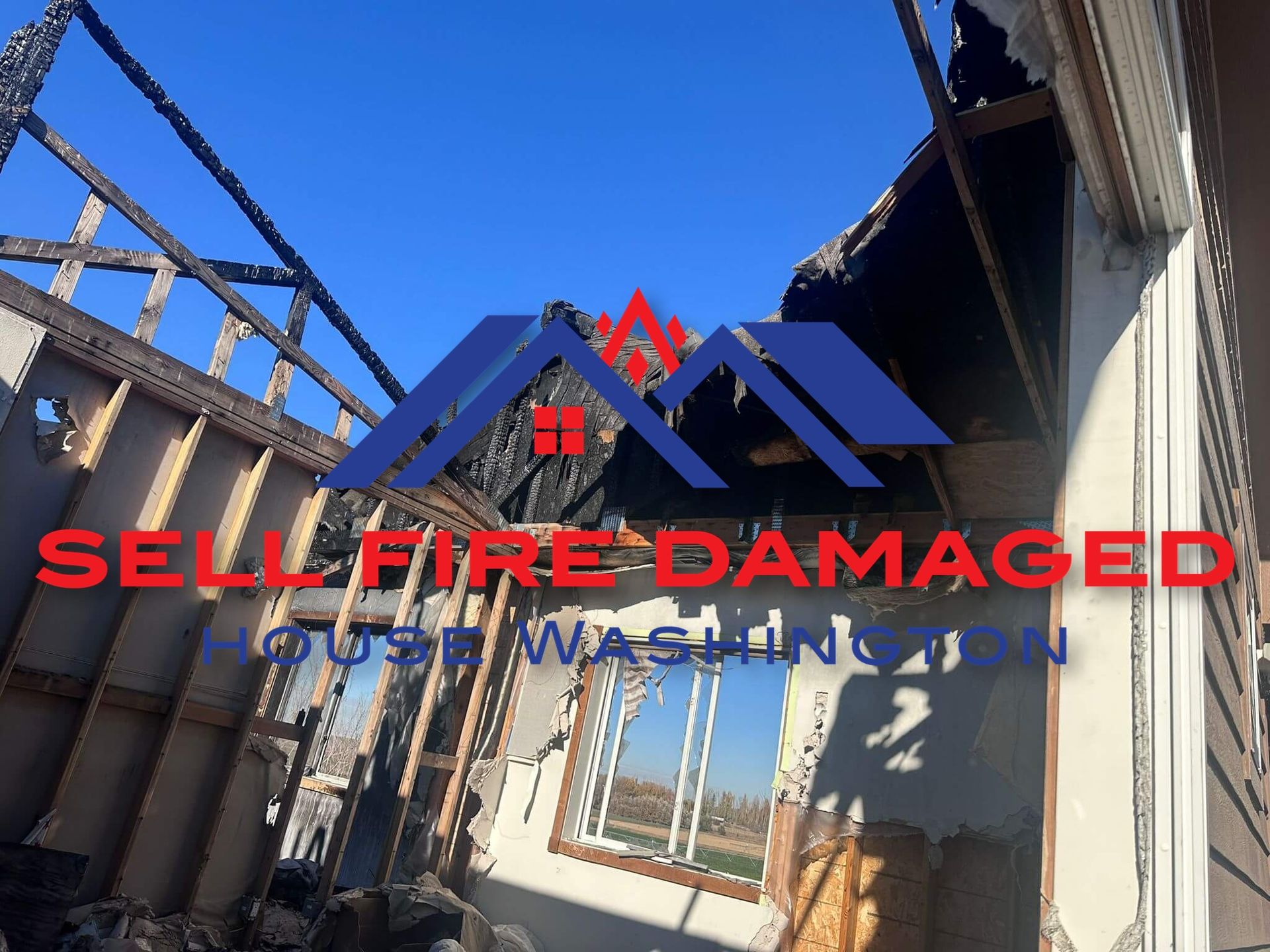Who Buys Fire Damaged Homes In Washington? Potential Buyers Explained
Published on July 11th, 2025
Lucas Sanders
AUTHOR
Free Offer Form
In Washington, fire-damaged homes are typically purchased by real estate investors, cash buyers, and specialized companies (like ours) who renovate or redevelop properties. Under Washington’s Landlord-Tenant Act (RCW 59.18.060), landlords must address fire damage in rentals, but homeowners can sell as-is—especially if liability is unclear (e.g., violations of Seattle Fire Code § 10.08 or state burn bans). Instead of navigating insurance hassles or costly rebuilds, you can sell as-is to us and skip the lengthy and huge repairs—we provide a fast, fair cash offer and handle all the paperwork. No cleanup, no delays.
A fire can cause extensive damage to a home, but there are still buyers interested in these properties.
You can approach buyers who pay cash, or real estate investors and house-flipping companies.
These licensed professionals are interested in these properties because they can buy them at a fair market value and make money by renovating or selling them.
Read this article to learn more about who buys fire-damaged houses.
Who Buys Fire-Damaged Homes In Washington?
Real estate investors, cash buyers, and house flippers all typically purchase fire-damaged houses.
They can locate potential fire-damaged properties from homeowners who may wish to sell their properties.
Selling your fire-damaged house quickly may be difficult if you're unfamiliar with the regular property retail market.
Real Estate Investors
Real estate investors are skilled at buying and fixing fire-damaged houses. They can evaluate the extent of the damage and effectively manage major repairs.
Like other buyers, they are attracted to these properties because a fire-damaged home has a lower market value. They can profit off of these homes, either by selling them after restoration or renting them out.
Compared to a traditional mortgage lender who'll avoid accepting fire-damaged properties, a real estate investor specializes in these scenarios and has buyers ready.
A real estate investor can allow you to sell your house fast and acquire cash immediately, even if you sell your fire-damaged house in its current state.
Cash Buyers
Cash buyers can be individual homeowners looking for a new home. Due to the transaction's ease, they may buy a fire-damaged home for personal use or as an investment.
However, they can also be real estate investors or house-flipping companies that can purchase a home outright, in any condition — sparing sellers from extensive disclosures and liabilities.
Regardless of issues like code violations, permits, mortgage arrears, or liens, cash buyers provide fair all-cash offers, free from complications.
However, it's essential to note that cash home buyers, real estate investors, and house-flipping companies all have distinct approaches.
House Flipping Companies
House-flipping companies also buy fire-damaged properties and they efficiently manage the entire fire-damage restoration process — from planning to sale.
Unlike individual real estate investors, house-flipping companies often focus exclusively on the buy-renovate-sell model.
They usually have a stricter process, so it may take time before you can secure your money from selling your property. Nonetheless, large flipping companies assure a more reliable process.
Factors These Buyers Consider
Buyers of fire-damaged properties consider several factors when evaluating a property.
- The Extent of Damage: The severity of fire damage and the property's overall condition.
- Location: Property location and its resale or rental potential.
- Repair Costs: Buyers factor in repair expenses when making a fair cash offer.
- Market Conditions: The current real estate market.
- Home Insurance Coverage: The insurance company can affect the financial burden of repairs.
- Mortgage Status: Existing mortgage loans affect the buyers' approach.
Immediate Financial Needs: Buyers ensure they meet the necessary funds for the property, repairs, and ongoing expenses.
How to Sell a Fire-Damaged Home In Washington?
Selling a house with fire damage is tough but possible, and a cash home buyer is the easiest option for homeowners.
Today, the process of selling fire-damaged homes is simpler. Many cash home buyers have an easy process. Just fill out their online forms and get a free, no-obligation quote.
Here's how to sell fire-damaged house fast:
Evaluating the Extent of Damage
You need to thoroughly inspect different parts of the property, including areas with water, soot, heat, and smoke damage. You'll also need to protect the property from suffering further damage.
Consider getting help from a damage assessor or real estate agent for precise damage assessment. They are experts at calculating potential restoration costs, understanding the repairs needed, and setting realistic expectations.
The professional real estate agent may ask about your home's size (square footage) to provide an accurate cost estimate for the new owner.
When evaluating the extent of house fire damage, remember to carefully examine all impacted components — including pipes, machinery, and structural components.
This is necessary for the home's occupant safety and affects the replacement cost and the value of the burned house on the market.
Understanding Market Conditions
Selling a fire-damaged house can be more difficult than selling one in good condition.
Typically, fire-damaged properties have a lower market value because buyers expect to invest in repairs and restoration.
Cash home buyers will consider these repairs when making offers, even if the fire caused the property to look like a total loss.
Therefore, the longer you leave your fire-damaged property neglected, the more difficult it will be to sell.
Stay informed about your local real estate market to adjust your selling strategy.
Disclosing the Fire to Potential Buyers
Disclose the damage's extent to possible buyers to avoid future legal issues.
When selling a house with fire damage, it's not just about finding the right buyer but also being honest about the property's condition.
These should include inspection reports detailing the fire damage, repair records, and any insurance policy covers related to water and smoke damage.
Being truthful about how much damage there is matters a lot. It keeps buyers informed and makes the seller more trustworthy.
NOTE: Some "As-Is Sales" buyers may accept properties in any condition without requiring sellers to disclose information. Before closing the deal, consider obtaining the relevant insurance coverage.
Options for Selling
Selling directly to a cash buyer may be the best option, as you avoid commissions and closing costs. However, it's best to explore your options first.
The two most-used options for selling a fire-damaged house are auction or accepting a cash offer from a buyer.
- Selling to a Cash Buyer: You can sell the home to real estate investors who buy fire-damaged houses that have sustained fire damage or list the home with a real estate agent or on the standard housing market.
- Auctioning the Property: You can also auction your fire-damaged house, which may attract investors and opportunity seekers.
Auctions can guarantee a sale date and drive the price, but selling to a cash buyer can be profitable and can sell your house fast.
Benefits of Selling to Companies or Investors In Washington
Homeowners facing the aftermath of a fire encounter several decisions, one of which is whether to sell the property as-is or invest in costly restoration.
Partnering with fire damage restoration companies or real estate investors can be extremely valuable.
Cash buyers assure a speedy selling method, no restoration costs or hidden fees, and reasonable cash offers.
Speedy Selling Process
Selling to companies or real estate investors can expedite the process,which can be advantageous for homeowners.
Buying a fire-damaged property can be done in 3 easy steps:
- Call or fill out a simple online form. After completing a few details, you'll be offered a fair price and will be contacted once the investor is ready.
- You will receive a free and no-obligation offer. If you sell the home as-is, you save thousands on realtor fees, closing costs, and necessary repairs.
- Choose the closing date. Real estate investors and companies will let you pick your most convenient time.
NOTE: If you are already dealing with an insurance company or insurance adjuster, you can still sell your house fast and work with them.
No Restoration Costs Incurred
You won't have to worry about expensive fire damage restoration costs because they'll take care of the repairs and rebuilding.
When you sell to these companies or real estate investors, you don't have to spend money fixing up the property before selling it.
You'll know exactly how much you'll get for your property because the sale price is based on its current condition.
Get Cash Offers
Investors and cash buyers can provide you with a cash offer — avoiding the uncertainties of traditional financing.
These buyers have the funds to purchase your house fast.
Selling a property that needs repairs is simpler with a cash offer, as any buyers will purchase it and handle repairs themselves.
Companies and investors often have readily available funds, allowing them to close deals promptly without the delays of a traditional mortgage lender.
Downsides of Selling Fire-Damaged Homes In Washington

Two significant disadvantages are selling the fire-damaged property below its actual cash value and the potential for exploitation.
While real estate investors often buy fire-damaged houses with a cash offer, they can still negotiate for a lower price.
Therefore, ensure you receive a reasonable offer during these property transactions.
Selling Price Below Market Value
One of the trade-offs of selling a fire-damaged home is that you might receive a lower price than the actual cash value in the current market.
Fire-damaged properties are often less desirable — leading to limited demand and fewer competitive offers.
Buyers may be worried about the extent of the damage, the cost of repairs, or the possibility of future problems. These expected costs are factored into their lower offers.
As a seller, you may need to lower your price expectations when selling a house with fire damages.
Potential for Exploitation
After surviving residential fires, the homeowner may be vulnerable, stressed, and emotional, making them susceptible to exploitation by unscrupulous buyers.
While most buyers are reputable, there is a risk of encountering unscrupulous individuals or companies.
Exploitative tactics include low balling offers, pressuring quick sales, and taking advantage of the seller's lack of knowledge about repairs and property value.
This can result in significant financial losses for the seller, as the property may be sold below its actual value. Always look into your buyers thoroughly, whether they're a cash buyer or a real estate investor.
Buying Fire Damaged Homes In Washington: An Opportunity for Investors?
Real estate investors can fix fire-damaged properties and resell them with effort and smart investments.
Fire-damaged properties can be attractive to buyers but come with risks.
Factors Attracting Investors
Real estate investors are ready to fix and upgrade these homes because the benefits are worth the challenges.
- Discounts: Homes damaged by house fires often sell for much less than their market price due to needed repairs, offering a profit potential for investors.
- Quick Turnarounds: Limited supply and investor demand make it possible to resell and repair fire damage quickly.
- Tax Benefits: When you renovate or buy fire-damaged houses, investors may qualify for tax advantages, like depreciation deductions.
- Profitability: Renovations can increase the property's value, leading to higher resale prices.
- Low Competition: Homes damaged by a house fire may have fewer competing buyers, giving investors negotiation advantages.
Risks and Rewards
These investors can reap the benefits mentioned in the previous section, such as discounts, quick turnarounds, tax advantages, profitability, and limited competitors.
However, the following are some of the inherent risks to the investors:
- Hidden Repair Costs: Repairing fire damage may cost more than the investor's initial estimate.
- Resale Challenges: Poor repairs can make reselling a burned property difficult, potentially resulting in financial losses.
- Reputational Risk: Inadequate repairs can harm an investor's reputation, affecting future property transactions.
- Market Fluctuations: Real estate markets can be unpredictable, affecting the time it takes to sell and return on investment.
Regulatory Challenges: Dealing with local regulations, permits, and inspections can cause delays and added expenses.
Legal Considerations When Selling Fire-Damaged Homes In Washington
Landlords have specific legal obligations after a fire occurs in one of their rental properties.
But, just like there are obligations of landlords after fire, there are also legal considerations both the buyer and seller must comply with.
Selling a burned home can be complicated, especially if you haven't paid off your mortgage yet. Selling to a cash buyer or investor is often the best option.
Disclosures Required by Law
When selling or buying a fire-damaged home, both sellers and buyers must adhere to specific legal disclosure requirements to avoid any issues in the future.
Here's a breakdown of what must be disclosed during the procurement:
For Sellers:
- Be transparent about the extent of fire damage.
- Gather essential documents: inspection reports, repair details, maintenance records, and safety measures to prevent future incidents.
- Provide proof of insurance company coverage for fire-related damage.
For Buyers:
- Include an inspection contingency clause for fire damage assessment.
- Outline the cancellation terms, as well as insurance and liability concerns.
- Clearly state (or put down in writing) the offered purchase price for the fire-ravaged property.
- Make it clear if the sale is "as-is," meaning the buyer is not requesting any further repairs or concessions from the seller.
NOTE: Sellers must disclose fire damage to buyers, regardless of whether it is required by law. Non-compliance can lead to legal trouble.
Regulatory Issues to Keep In Mind
Investors should disclose any compliance or non-compliance with local building and safety codes after the fire and subsequent renovations.
Ensure compliance with these regulatory guides:
- Disclosure: Sellers must disclose fire damage, repairs, and hazards as required by local laws.
- Building Codes: Ensure compliance with current building codes before finalizing a real estate transaction.
- Insurance Company: Buyers and sellers should consider insurance implications and disclose relevant claims.
- Environment: Be aware of environmental regulations related to hazardous materials.
- Permits and Approvals: Obtain necessary permits and approvals for property work.
- Property Taxes: Keep property taxes up-to-date and inform buyers of any outstanding obligations.
NOTE: Sales or burned property may have location-specific regulations, but a real estate investor can navigate them. When they make an offer, it's usually "as-is" with no future obligations.

Frequently Asked Questions
Read this section to learn more about selling and buying fire-damaged property:
What Is the Process of Selling a Fire-Damaged Home?
Selling to cash home buyers is often the fastest process for selling a burned house. They specialize in this kind of sale.
Nonetheless, here are 10 steps in selling fire-damaged properties:
- Assess the fire and smoke damage. Salvage any personal belongings if possible.
- Contact an insurance agent for an insurance claim.
- Estimate all costs involved.
- Ensure legal compliance.
- Choose a method to sell your fire-damaged house.
- Prepare documentation.
- Set an asking price.
- Market the property.
- Negotiate offers.
- Close the sale.
Who Typically Buys Fire-Damaged Homes?
Real estate investors, individual or private cash buyers, and house-flipping companies are all interested in buying fire-damaged property with a cash offer — at a much faster rate and without hefty fees.
In most cases, cash buyers (which can also be real estate investors or house-flipping companies) provide a straightforward solution for selling a burned home.
They also typically purchase homes in “as-is” condition, including those damaged by fire.
How Much Less Can I Sell My Fire-Damaged Home For?
The impact of fire on property values depends on the extent of the damage.
In general, a house with fire damage will typically sell for a lower price than its pre-fire condition.
According to the National Fire Protection Association (NFPA), "more than 45,000 home structure fires ignite every year due to an electrical failure or malfunction, causing more than $1.4 billion in property damage."
Factors like location, extent of damage of the home fire, and market conditions influence the value.
In cases where the fire destroyed the entire home, you might only sell the land's value. Conversely, if only a small portion of the home was damaged, like in a kitchen fire, you can sell closer to the property's value.
Can I Sell My House as Is After a Fire?
Selling your fire-ravaged home as-is is possible but may result in a lower selling price.
If you'd rather avoid the stress of repairs and temporary housing, consider selling to an investor or company that handles burned homes and can take care of the repairs.
Some buyers like ourselves can allow you to sell your house fast and acquire cash immediately, even if you sell a fire-damaged house as-is.
What Are the Legal Implications of Selling a Fire-Damaged Home?
When selling a home damaged by fires, remember the legal requirements of property disclosure, potential liability, and compliance with local regulations.
These should be complied with to avoid future legal issues.
To sell a fire-damaged property safely and legally, consult a real estate agent who is familiar with the legal requirements and can protect you from any potential liability.
Conclusion
Once the fire is out, your home isn't just damaged by fire and smoke but also by water from firefighting efforts made by both residences and the local fire department.
However, fixing a burned home—selling as-is, doing the repairs yourself, or getting help from investors or specialists—depends on your situation, timing, and resources.
While it may present challenges, it's also an opportunity to move forward and find a cash buyer who is willing to buy fire-damaged property.


